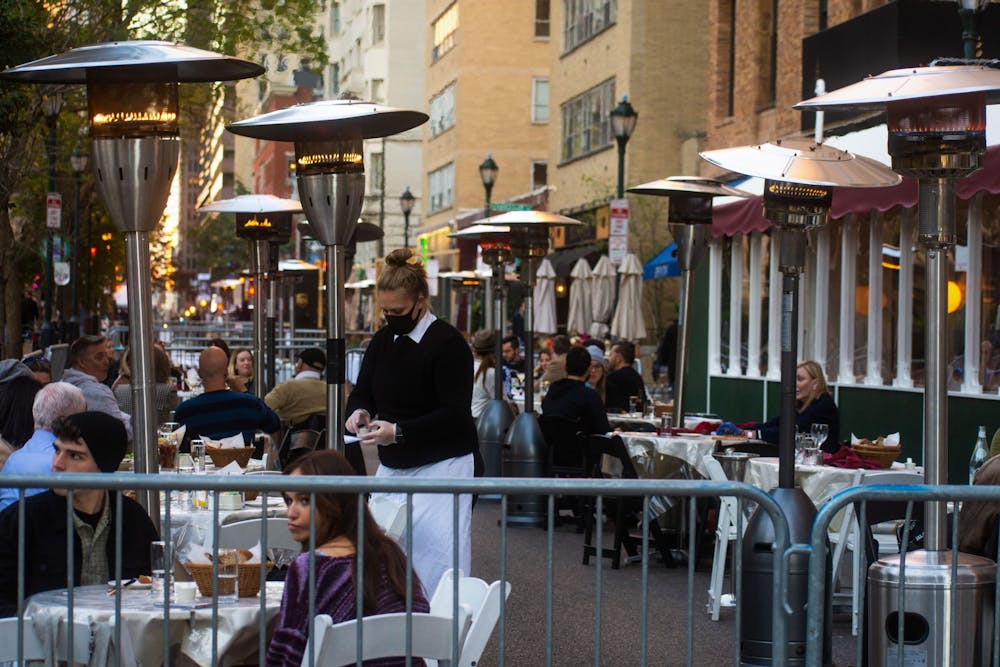
Philadelphia restaurants are unhappy about new regulations concerning "streeteries" — outdoor dining on the city sidewalks — which have helped them to navigate the pandemic.
Streeteries were first approved in 2020 on an emergency basis in response to the COVID-19 pandemic. In December 2021, the Philadelphia Council passed a bill that permanently legalized streeteries in certain areas across the city, including Center City, East Passyunk, and University City, WHYY reported.
Under the new bill, the streeteries will have to adhere to regulations, such as installing a crash-proof barrier to prevent accidents and adhering to time restrictions on when they can operate.
During the pandemic, they were used by several restaurants to keep business going. According to an analysis by Councilmember Allan Domb, outdoor dining licenses grew from 230 to 830 during the pandemic.
In March, the city introduced new regulations on streeteries. These regulations include a $2,200 licensing fee and a $60,000 security bond, as well as a mandate to take down all structures — including electrical infrastructure — prior to inclement weather.
These regulations were supposed to take effect on March 11. However, the city faced backlash.
Philadelphia restaurant owners expressed outrage with the new regulations, which come at a peak time for businesses to leverage streeteries, since the weather has begun to get warmer. Additionally, restaurant owners are upset that the $2,200 fee is "one-size-fits-all," WHYY reported, as it hurts smaller businesses.
These considerations were voiced at a meeting on Wednesday afternoon, and city regulators will create a report based on the meeting. The report could include amendments, but it is unclear when it will come out. After the report is published, it will be 10 days until the regulations take effect.
“Let’s think about this together and come up with a plan that’s inclusive and works for the greater good, not just a few,” said Doug Hager, owner of Brauhaus Schmitz told WHYY. “We’re not saying no to regulations, but just involve us in the development of such.”
The Daily Pennsylvanian is an independent, student-run newspaper. Please consider making a donation to support the coverage that shapes the University. Your generosity ensures a future of strong journalism at Penn.
Donate







